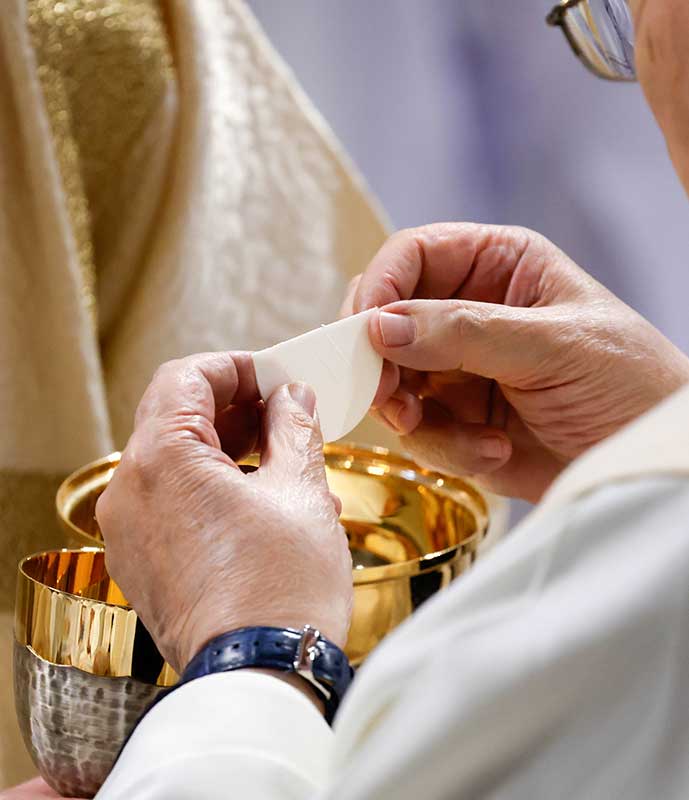How Long Before Mass Must We Fast?

A priest takes the Eucharist during the Chrism Mass in St. Peter’s Basilica at the Vatican. (CNS photo/Lola Gomez)
Question: How long before Mass are we required to fast? Some say it’s an hour, and others say half an hour?
Answer: The faithful are required to observe a period of fasting before receiving the Eucharist. Under the current regulations, this fasting period is one hour before Communion.
Specifically, the Catechism notes: “The faithful are to abstain from any food or drink, except for water and medicine, for at least one hour before receiving the Eucharist” (1387). This fast is intended to prepare the faithful spiritually and physically to receive the Body and Blood of Christ.
Confusion may arise when the requirement is said to be only half an hour. This may stem from an important distinction: The fast applies to the reception of Communion, not to the entire duration of the Mass. This means that one must refrain from eating or drinking for one hour prior to receiving Communion, but there is no obligation to fast for an hour before attending Mass itself.
For example, if a Sunday Mass lasts about an hour and Communion is distributed in the second half, then fasting for just 30 minutes before the beginning of Mass may suffice to meet the one-hour requirement. However, for daily Mass, which is typically shorter, a different calculation may apply.
For most people, one may add, there is no reason why they shouldn’t fast for more than an hour before receiving the greatest feast on earth.
Those who do not receive Communion are, of course, not bound by the fasting rule, but they may still find spiritual value in fasting before Mass as a means of preparation.
Exemption from fasting
The Catechism (1389) also makes allowances for those with health concerns, such as diabetes or other medical conditions requiring regular or emergency food intake. They may receive Communion even if they have not observed the prescribed fast, as their health takes precedence.
For instance, a diabetic who eats within the fasting period in order to counteract a hypoglycaemic episode is not bound by the rule and may freely receive Communion.
Children who have received their First Communion — and are therefore considered to have reached the age of reason — are not exempt from fasting. However, the practical application of this rule can be adapted based on individual circumstances, such as the child’s understanding of the Eucharist and physical ability to fast.
Historically, the fasting requirement was far more stringent. Prior to the reforms of the Second Vatican Council, a three-hour fast was the norm. The current one-hour fast reflects a pastoral approach which encourages participation in the Eucharist while maintaining a sense of reverence and preparation.
- Furgione Graduates Rome Film School with Honours - March 3, 2026
- Mass Readings: 8 March – 15 March, 2026 - March 3, 2026
- Pope Leo: Jesus is Living Wisdom - March 2, 2026





